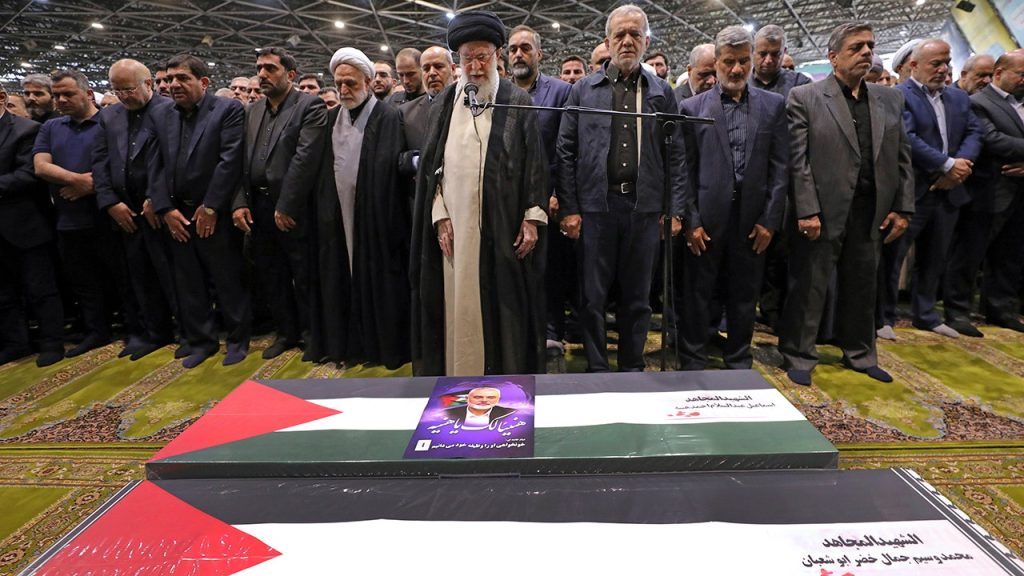Western powers including France, Germany, and the United Kingdom issued a joint statement warning Iran and its allies to refrain from further escalation in the Middle East. The statement comes amid concerns that Iran and its proxies could attack Israel in retaliation for the killing of Hamas political leader Ismail Haniyeh. The leaders called for a ceasefire and the release of hostages, emphasizing the importance of regional stability and de-escalation. Tensions are high in the region, with Lebanon bracing for a wider war and the Islamic State plotting its re-emergence.
However, Hamas announced that it would not participate in new ceasefire negotiations unless based on previous talks. The group accused Israel of not being serious about pursuing a ceasefire agreement, citing recent suspected Israeli actions. Tensions are also rising between Israel and Lebanon, with Hezbollah launching rockets into northern Israel, although no casualties were reported. Despite enduring months of airstrikes, Hezbollah appears undeterred in its attacks against Israel. Hezbollah leader Hassan Nasrallah hinted at Lebanon becoming involved in a wider conflict, blaming Israel for escalating tensions.
In response to the violence, the IDF carried out retaliatory airstrikes in Beirut, targeting the Hezbollah commander accused of orchestrating an attack that killed 12 children and teenagers. Hezbollah’s increased intensity of attacks and willingness to expand the conflict indicate a volatile situation in the region. Meanwhile, ISIS is making a resurgence in Syria, building up its ranks in the Badiya desert. U.S. aircraft are conducting airstrikes and providing support to Syrian Democratic Forces in countering ISIS threats.
The rise of ISIS poses a significant challenge in the region, with the group claiming responsibility for numerous attacks in Syria and Iraq. American special forces officers stationed in Syria note the movement of men, weapons, and equipment by ISIS, indicating a growing threat. The tensions in the Middle East are also affecting the United States, with a 22-year-old Brooklyn man facing hate crime charges after stabbing a man following anti-Israel rhetoric. The spillover of conflict highlights the interconnectedness of global security issues and the impact of regional tensions on international relations.
The situation in the Middle East is at a critical juncture, with Western powers urging Iran and its allies to de-escalate tensions and work towards a ceasefire. The refusal of Hamas to engage in new negotiations and the ongoing attacks by Hezbollah against Israel add to the complexity of the conflict. As ISIS regains strength in Syria, the threat of terrorism looms large, requiring coordinated efforts to combat extremism and maintain stability in the region. The interconnected nature of global security challenges underscores the need for international cooperation and diplomacy to address the root causes of conflict and promote peace in the Middle East.


